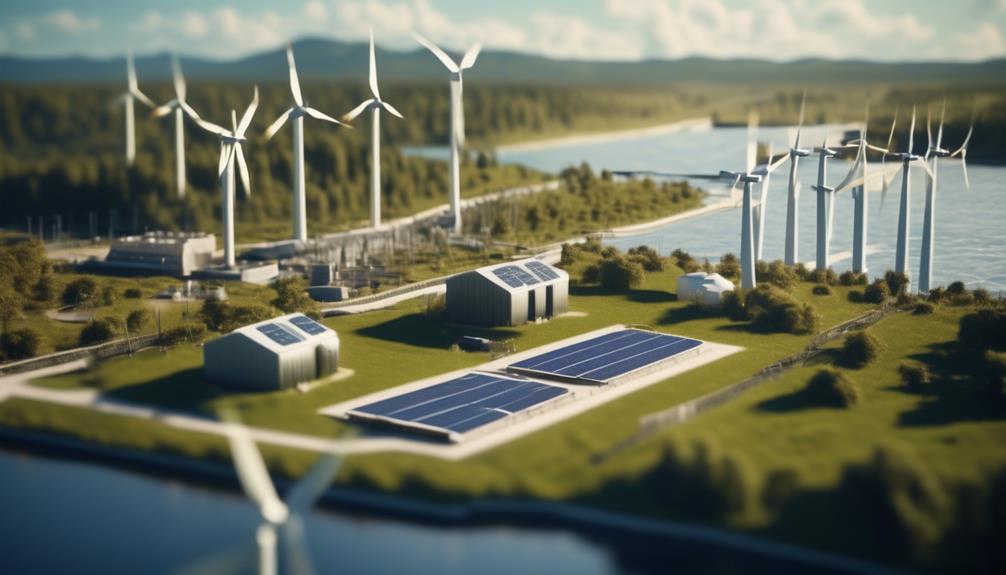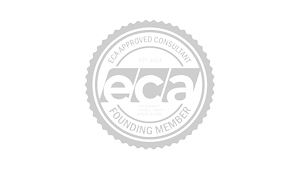In the ever-evolving corporate world, the pursuit of optimising energy usage stands as a critical endeavour for businesses aiming to excel in operational efficiency and sustainability. Navigating the intricate maze of energy procurement, understanding fluctuating energy prices, and implementing custom energy management solutions can often feel like a daunting task.
For companies dedicated to enhancing their energy strategy, the path forward involves more than just managing costs—it’s about integrating energy considerations into the very fabric of their operations, a challenge many are eager to meet but unsure how to approach effectively.
With an acute awareness of the complexities surrounding corporate energy utilisation, this discussion delves into the nuanced dynamics of energy management. It addresses the pressing need for a cohesive strategy that not only aligns with a company’s overarching goals but also positions it to thrive in a landscape marked by unpredictability and opportunity.
Through an expert lens, we explore how businesses can transform their energy challenges into competitive advantages, promising a comprehensive guide that speaks directly to those ready to refine their approach to energy usage.
As we move forward, be assured that the insights shared here will illuminate the path to not just surviving but excelling in crafting and implementing an optimal energy strategy, inviting you to read on and discover how to turn this aspiration into actionable reality.
Understanding Energy Procurement and Green Energy
Understanding energy procurement and green energy is essential for businesses seeking to optimise their energy sourcing while minimising their environmental impact. Energy procurement involves strategically sourcing the power a business needs while considering factors such as energy consumption patterns and business requirements.
Working with industry experts, such as energy brokers, can ensure that businesses find the most suitable energy solution. This includes analysing energy usage within the company and identifying opportunities to reduce energy consumption. Investing in energy-efficient appliances and machinery can significantly reduce energy costs by up to 30%, presenting a cost-effective solution in the long run.
Moreover, embracing green energy from renewable sources not only aligns with corporate social responsibility but also offers opportunities for a positive return on investment. By installing energy efficiency measures and incorporating renewable energy sources into their energy strategy, businesses can significantly reduce their carbon footprint and contribute to a more sustainable future while optimising their energy expenses.
Navigating Energy Prices and Programmes
Navigating energy prices and programmes in today’s competitive market requires a comprehensive understanding of cost implications, supplier differentiation, and the strategic selection of energy procurement options for businesses. To achieve optimal corporate energy usage, companies should consider the following strategies:
- Conduct an energy audit to identify areas of inefficiency and opportunities for cost savings.
- Implement energy efficiency measures to reduce energy usage and lower bills.
- Evaluate the factors influencing energy prices and explore various energy programs to choose the most suitable option for the company’s needs.
- Consider the benefits of green energy, not only for environmental impact but also for building trust and attracting top talent.
Commercial and Industrial Energy Utilisation
With the increasing demands placed on commercial and industrial energy utilisation, companies are compelled to streamline their energy consumption and optimise operational efficiency to remain competitive in the evolving market landscape. High energy costs can significantly impact a company’s bottom line, making it imperative for businesses to implement efficiency measures and innovative strategies to reduce energy expenditure.
Implementing technologies such as occupancy sensors can help regulate energy usage based on occupancy patterns, thereby cutting energy waste. Furthermore, regular maintenance of machinery and equipment is essential to ensure they operate at peak efficiency, minimising energy wastage.
Companies also need to consider the environmental impact of their energy utilisation, especially in the context of climate change. By focusing on commercial and industrial energy utilisation, businesses can not only reduce their company’s energy expenses but also contribute to sustainability efforts.
Understanding and actively managing commercial and industrial energy utilisation is not only a financial imperative but also a strategic necessity in today’s competitive business environment.
Enhancing Business Energy Affordability and Efficiency
Amid the escalating demands placed on commercial and industrial energy utilisation, businesses are increasingly focused on enhancing energy affordability and efficiency to mitigate the financial impact of high energy costs and bolster operational resilience.
- Reducing Energy Consumption
Implementing behavioural measures such as encouraging employees to turn off lights and equipment when not in use can make a big impact in reducing your company’s energy consumption. Upgrading to energy-efficient air conditioning systems can help keep energy costs down and reduce the emission of greenhouse gases, particularly carbon dioxide.
Businesses are finding that enhancing energy affordability and efficiency is essential not only for cost reduction but also for maintaining a competitive edge and meeting sustainability goals. Implementing these measures and integrating them into the overall energy strategy can create new value for companies by reducing risk, increasing resilience, and contributing to environmental sustainability.
With a proactive approach to energy management, companies can optimise their operations and achieve long-term success in an increasingly competitive and environmentally conscious business landscape.
Strategies for Reduced Energy Consumption and Emissions
In pursuit of reduced energy consumption and emissions, businesses must integrate a cohesive energy strategy into their operations to drive cost savings and enhance operational resilience. This integration involves setting clear energy goals aligned with the company’s vision and operations, tracking progress across the organisation, and embracing new technologies to optimise energy usage.
A five-step framework can be applied to a company’s energy use, supported by a C-level mandate to prioritise the energy strategy. This approach ensures that energy reduction efforts are companywide and effectively managed. Additionally, businesses should consider renewable energy options, remote working, and regular energy audits to foster an overall energy-conscious culture.
For small businesses, it is crucial to make sure that energy-consuming equipment is used efficiently. This can include simple actions such as turning off lights and computers when not in use, and optimising heating systems to reduce energy waste. Identifying and addressing sources of draughts in buildings is also essential to prevent energy loss.
Implementing Bespoke Energy Management Solutions
To effectively address the specific energy needs and challenges of a company, bespoke energy management solutions can be tailored through the utilisation of advanced technologies and data analytics to optimise energy usage, reduce waste, and improve overall efficiency.
Collaborate with energy consultants and industry experts to design and implement tailored energy strategies, leveraging their expertise to ensure the most effective solutions for your company’s unique requirements. This approach allows for a comprehensive assessment of your energy usage patterns, identifying areas for improvement and providing actionable insights for sustainable energy management.
Integrate renewable energy sources and sustainable practices into your energy management solutions for long-term environmental and financial benefits, such as incorporating solar panels and other green technologies. By embracing renewable energy, companies can reduce their reliance on traditional power sources, effectively lowering their carbon footprint and contributing to the larger goal of reducing greenhouse gas emissions in the energy industry.
Implementing bespoke energy management solutions offers small enterprises (SMEs) the opportunity to exercise greater control over their corporate energy usage, fostering a culture of energy consciousness and sustainability within the organisation.


















